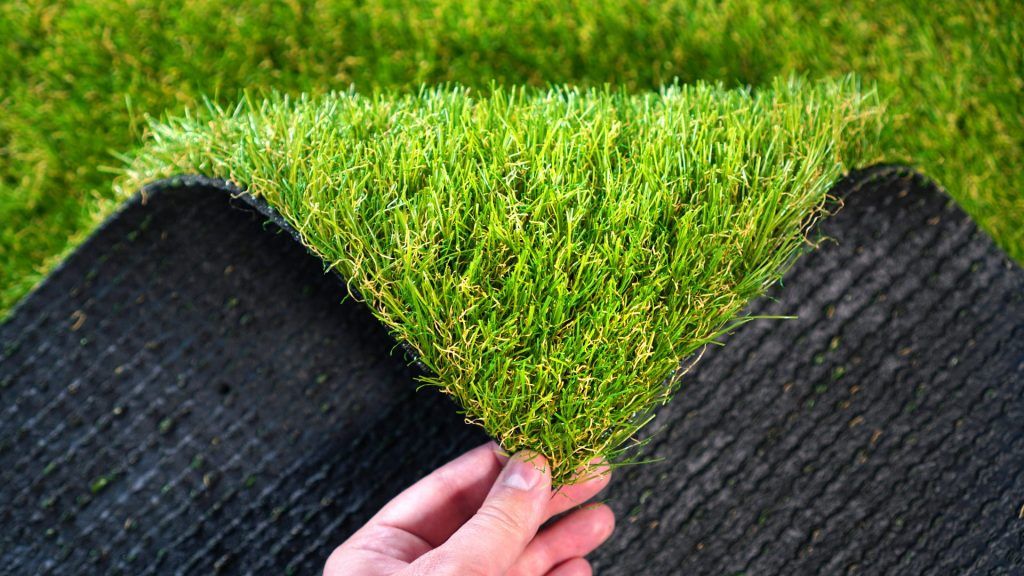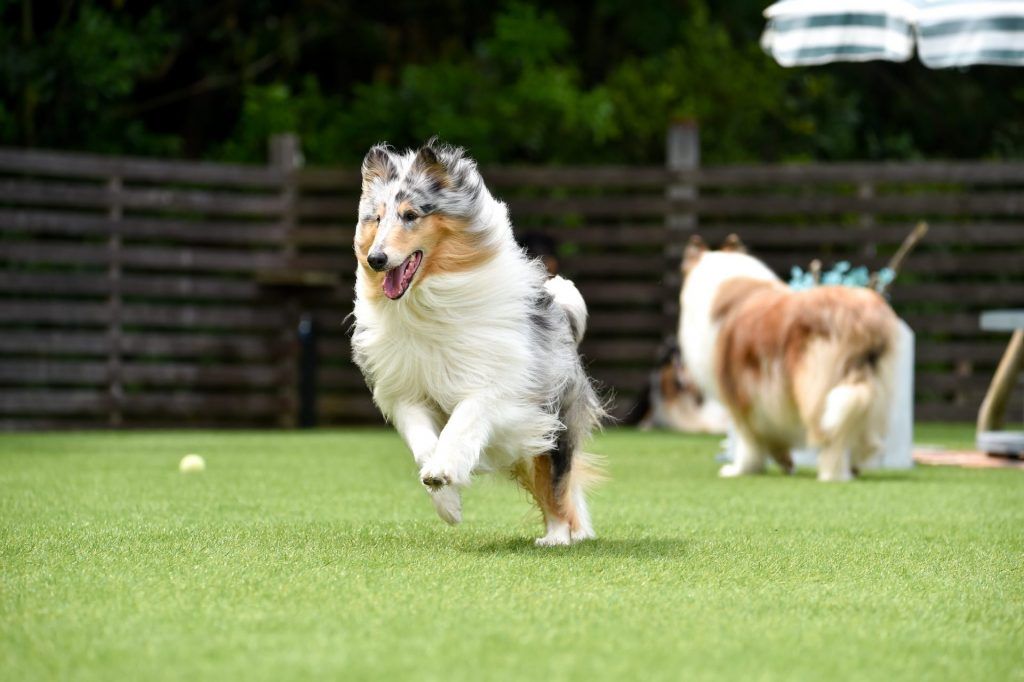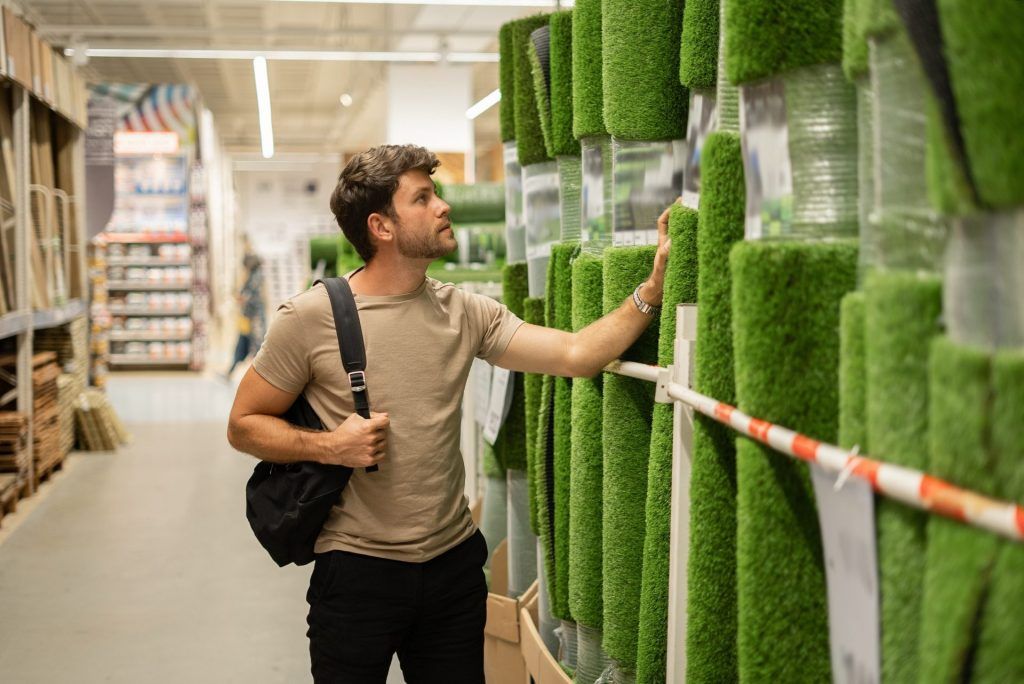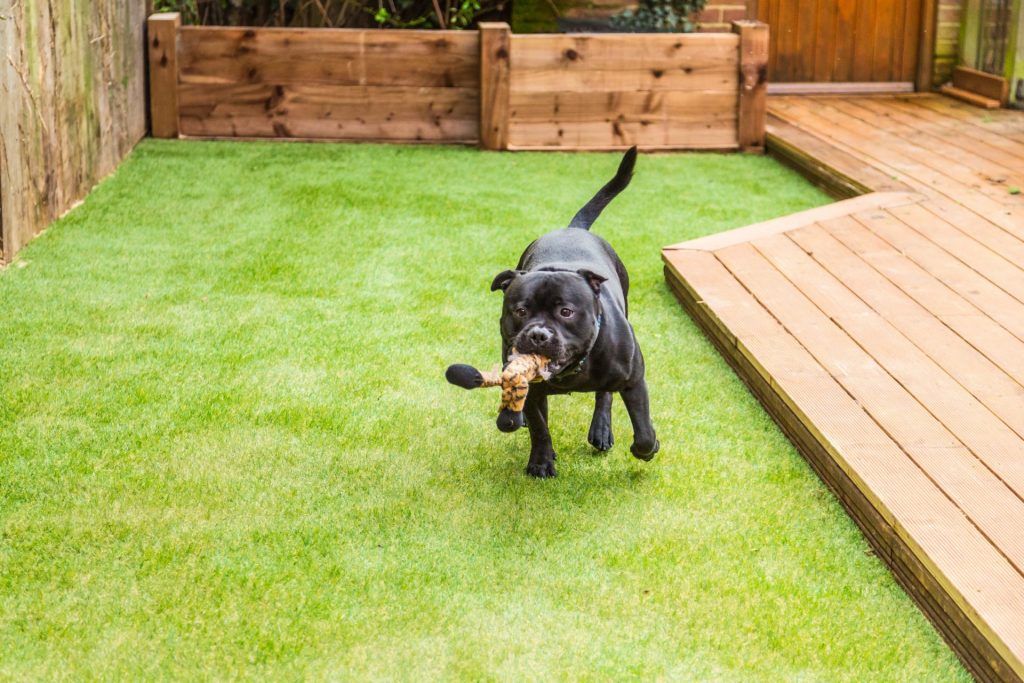Artificial grass (turf) can be incredibly enticing for those that want a nice green yard all year long. Plus, mowing becomes a thing of the past! But what will your dog think of it? The yard is effectively their litter box, after all.
Will they like it, or will it cause problems? As a dog owner, an important question often asked is, “Can dogs be allergic to artificial grass?” To put it bluntly, yes, they can be allergic to it. Like any allergy, though, it depends on the individual dog. In most cases, artificial grass is safe for dogs.
Personally, I’d recommend testing it out to make sure your dog has no issues, reactions, or aversions before ripping out all your sod and replacing it with a lush synthetic yard.
So how do you tell if your dog is allergic to the grass, or what can you do about it? Let’s take a look!
Why are Dogs Allergic to Artificial Turf?
Allergies in dogs due to synthetic grass is primarily due to chemicals. Most artificial turf is made with one of two backing materials, latex or polyurethane (also called PU). Dogs can be allergic to either of them. PU reactions are less common, but both are considered uncommon.

If your dog is allergic to either latex or PU it will cause a skin condition called contact dermatitis. Meaning your dog’s skin gets irritated and inflamed when exposed to the materials. Keep in mind, like humans; dogs can get allergies over time with repeated exposure, in this case, being exposed to harsh chemicals in the yard every day. So just because your dog isn’t allergic to your artificial lawn now doesn’t mean they won’t be in the future.
Some dog breeds are more likely to develop allergies than other dogs too. Breeds like labs, boxers, and bulldogs are among those typically at a higher risk.
Symptoms of Allergic Reactions from Artificial Grass
The signs of artificial grass allergies in dogs are similar to normal grass allergies. Things to look for are:
- Itching and scratching
- Licking and biting
- Hair loss and bald patches
- Rashes and hives
- Hot spots and sores
- Runny nose and sneezing
- Watery eyes and conjunctivitis
- Ear infections and head shaking

If you notice your dog suffering from any of these symptoms after putting in any synthetic turfs, it needs to be investigated. Your vet will be able to perform tests to rule out various allergens and find the actual culprit. It is possible that there is something else causing the reactions, like fleas.
Fleas and Other Allergen Causes
A common misconception is that fleas and other insects can’t live in fake grass. It is true that it’s significantly less common than with natural grass, but it does still happen. So don’t immediately rule it out if your dog starts itching like crazy. Check under their fur for these pesky bugs first!
It’s also possible for dust and pollen to build up on even the best artificial grasses. Both of which can affect dogs with allergies.
Natural Grass Vs. Artificial Grass
There are many benefits of artificial grass compared to natural grass.

Unlike natural grass, artificial grass doesn’t need routine lawn care. Using pesticides, herbicides, fertilizers, and other chemicals to help keep your yard nice and green year-round can be harmful to a dog’s health. Maybe your dog is allergic to grass. The pollen grass releases as it grows is known to trigger dog allergies, which artificial turf can alleviate. It also holds up very well against dogs that like to run around so much that they’d typically cause ruts in a yard.
On the other hand, many dogs won’t relieve themselves on artificial turf, which can obviously be a major issue for pet owners. It also gets much hotter than natural grass, potentially causing paw burns similar to walking on hot pavement. Because of the presence of urine and feces on artificial turf in public places like apartment complexes, dog parks, and similar pet-friendly areas, they often use products to clean and sanitize. Most of these are marketed as safe for dogs to ingest, but they aren’t always, and some dogs can have bad reactions no matter how “safe” they claim it is.
At the end of the day, neither option is right or wrong. It’s up to you and what works best for your dog!
Preventing or Treating Grass Allergies in Dogs
The first step is knowing what the symptoms of grass allergies look like. If your dog shows symptoms after he goes outside, you’ll want to track down the cause first and either remove it, keep your dog away, or seek other options. Depending on what it is anyway.
Depending on the severity of the symptoms, your veterinarian may recommend something as simple as an antihistamine like Benadryl (safe for dogs) to more extreme options like replacing your grass with artificial turf over the entire lawn.
Selecting Safe Artificial Grass for Dogs
Proper drainage is one of the most important factors to consider. Both the slope of your yard and the backing material will affect how well it drains water and pet urine away. Fortunately, they are pretty easy to clean, but make sure to rinse with water and vinegar instead of harmful products. This combination will not only clean but it’ll help take care of any foul odor lingering around.

One of the best choices we found is the Petgrow Artificial Turf. There are many other brands as well, so do your research and make sure you check what materials are used when considering your purchase.
























